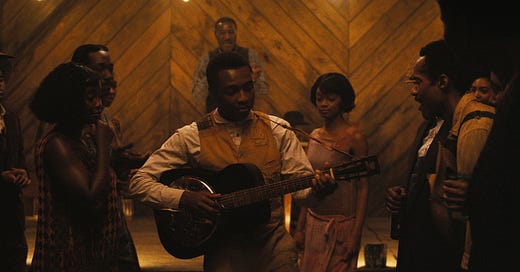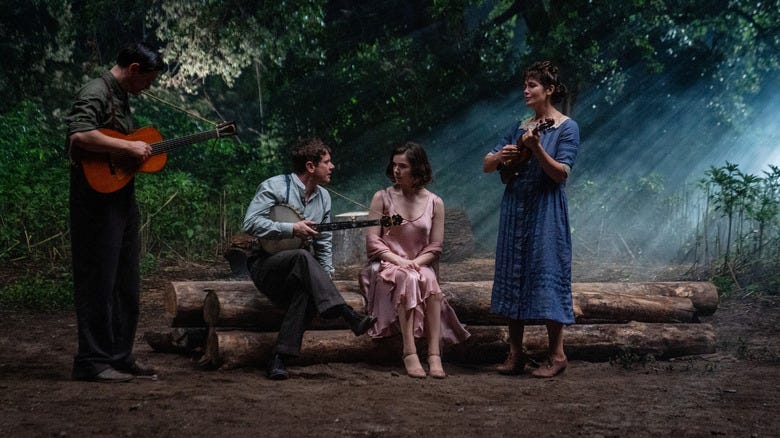Listen: The South is full of the supernatural. Ryan Coogler's "Sinners" understands this, as it understands nearly everything. The film begins with the adventures of Smoke and Stack (identical twins played by Michael B. Jordan) who return to 1932 Mississippi to open a juke joint with stolen mob money. You cannot imagine where it goes from there. When I say this horror film could've been made by John Carpenter, it's the highest praise. Let's get this out of the way at the top: I need to talk about this film, which includes spoilers. This review is 600 words long, and I'm not sorry for it at all.
When did I realize I was watching something special? I could pick a hundred moments, but it's probably when Grace Chow (Li Jun Li) opens her mouth and speaks with a Southern accent. Grace is half of a husband-and-wife team who own a grocery in the Mississippi Delta. She is contracted by Stack to supply the goods for the dance hall that Jordan's characters are setting up outside of Clarksdale. The camera follows Grace as she crosses over from her store on the white side of the street, to a store on the Black side. Subtle, effective, quietly devastating, utterly accurate.
That told me two things: the filmmakers knew about the Delta Chinese-American community, and they understood the oppressive yet intimate racial politics of the Thirties South. What recent mainstream films have bothered about getting history right? For God's sake, Ridley Scott's "Napoleon" had its protagonist there for the beheading of Marie Antoinette. Yet *this* movie cares. It cares so damn much. That might be unexpected praise for what can be broadly summarized as "an erotic horror vampire musical about the transcendence of Black art." But any director who cares about getting Ms. Chow right--about making neither her nor the South broad caricatures--is someone I can do business with as a viewer.
How precisely the film does its work is hard to describe. Here's an attempt: "Sinners" is completely sincere. Like Stephen King, this film pushes the accelerator all the way to the floor. It fully commits. It endures the risk of being called silly or weird to throw punch after punch at the audience. Every single blow lands. Every wild premise works. This film has Jordan executing Klansmen with a Tommy gun and that's practically an *afterthought*.
"Sinners" also contains what's arguably the best scene from any movie this year. Our protagonist, young Sammie “Preacher Boy” Moore (Miles Caton), defying his minister father, plays "I Lied To You" in the middle of Smoke & Stack's juke joint to an audience of sharecroppers, and lo, the power of the Blues literally bends time and space, integrating the past, present, and future of Black music in a single jam session. It's so cool. Sammie's music is a double-edged sword, though. "White people love our music, they just hate us," bluesman Delta Slim tells him, but one viewer is interested in both song and singer. Remmick, an Irish vampire who looks like an evil Lumineer, tastes the music's power from afar, and as the evening draws on, he moves closer, closer ...
It's a siege movie, a coming of age movie, a self-aware genre flick. Hailee Steinfeld spits into a dude's mouth and that just whooshes by you; before you know it, there's a surprise vampire Riverdance jig musical number in the moonlight, in perfect sync, and it's both delightful and menacing. Sublime! But this doesn't quite sum up Coogler's film: "Sinners" is about liberation. About false emancipation and real self-determination; about what the Devil promises and what art actually delivers on. Or, as a character says at the close: "And just for a few hours, we was free." Of course--isn't that what movies are for?





